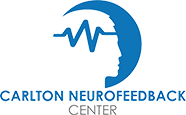Obsessive Compulsive Disorder (OCD) is a type of anxiety disorder that can be very disruptive to someone’s life. While you or I might fret when we check if our front door is locked once or twice, someone with OCD might compulsively check it 30 or 40 times. Characteristics of this type of mental health condition are repetitive behaviors that individuals feel they cannot stop or compulsive thoughts that are on endless repeat. It can be exhausting for those suffering from it. It can also be difficult for friends and family who do not understand why someone must constantly rearrange their closet, obsessively fill their garage with items, or have such a fear of germs they can’t go out to eat.
Luckily neurofeedback is one effective treatment that can ease OCD and anxiety symptoms so that you can get back to your life. Here are the top six.
Neurofeedback is non-invasive
Neurofeedback is based on “operant conditioning,” an all-natural process that your brain uses daily to learn new activities. It can help your brain break the cycle that is leading to thoughts and behaviors that are taking over your life. Initially, a brain map is done to determine where your brainwave distribution is imbalanced. Once this is done, a training protocol is developed to improve the distribution and eliminate your OCD symptoms.
Neurofeedback is not painful and produces permanent improvements in brainwave activity.
The training itself is both pleasant and safe. In fact, all you have to do is relax and watch a movie! While you focus on the video, our computer-aided program will provide audio and visual feedback based on your brainwave activity. Over time, your brain learns to remain more balanced, resulting in long-term improvements.
Neurofeedback may be able to reduce your reliance on medication.
Not everyone responds well to the medications designed to treat OCD. If medications are effective in your case, you may then have the uncomfortable realization that you will need to take them for the rest of your life. On the other hand, neurofeedback involves helping your brain identify when it is “out of bounds” to become more balanced and break the repetitive cycles that lead to compulsions. This leads to less need for medication and sometimes eliminates the need for drugs.
Neurofeedback has no side effects.
While medications can cause side effects, neurofeedback is an all-natural process and, as a result of that, produces no side effects. However, patients report that they often feel calmer and sleep better than they have in a long time.
Researchers have found neurofeedback is effective.
One research report showed that all of the 36 patients who received neurofeedback training to treat their OCD showed improvement. More than two years later, most patients in this study (19) maintained improvements in their symptoms.
We Want to Help
If obsessive thoughts make it difficult to live your life, call Dr. Ed Carlton at Carlton NeuroFeedback Center at (703) 335-9149. Located in Manassas, Virginia, he offers a free, confidential evaluation to answer your questions and help you determine if neurofeedback might be right for you. Learn more by downloading our free eBook, which has more patient success stories and explains in layman’s terms how neurofeedback helps restore your brain balance.


